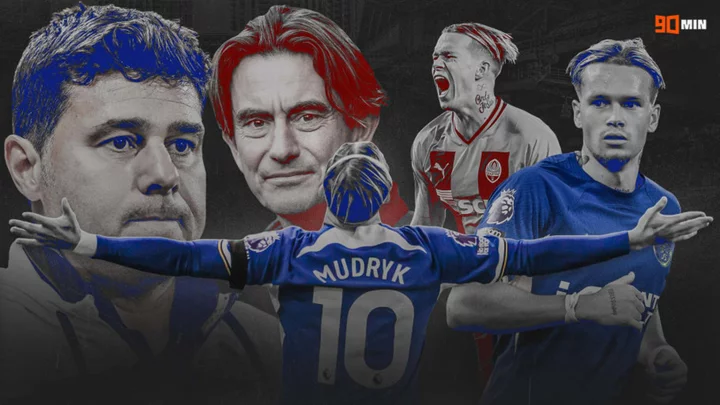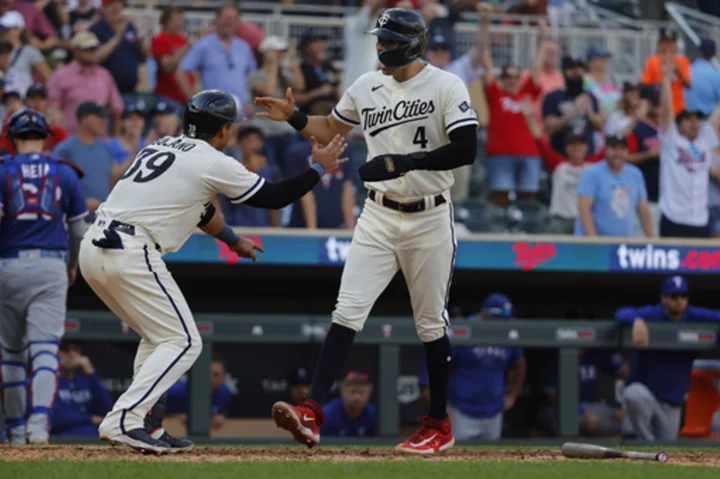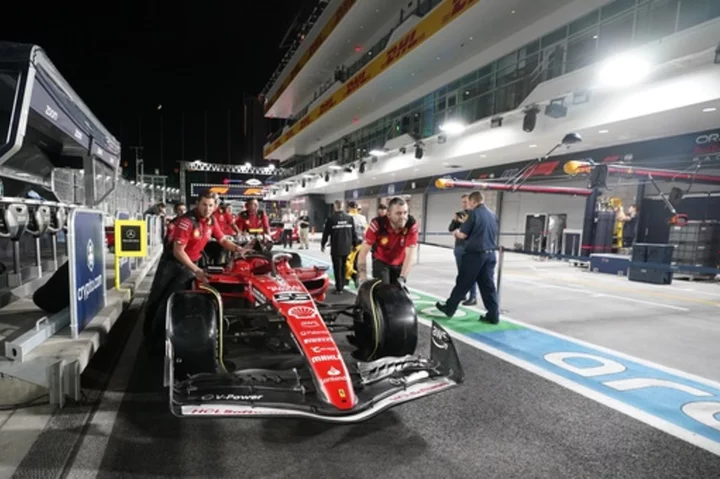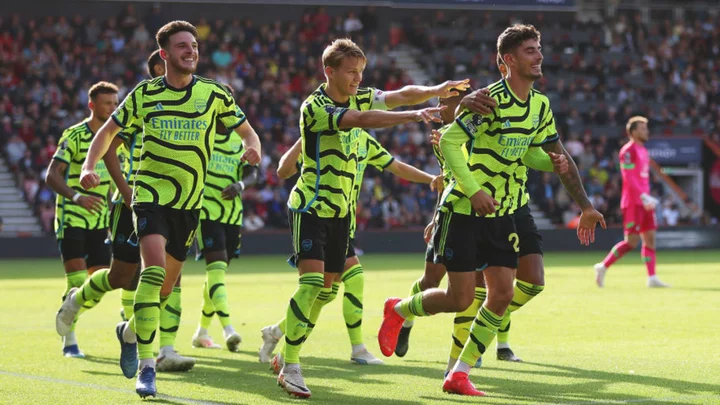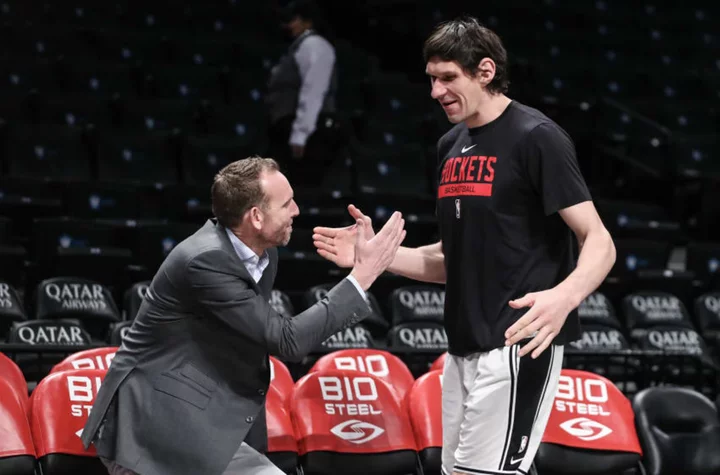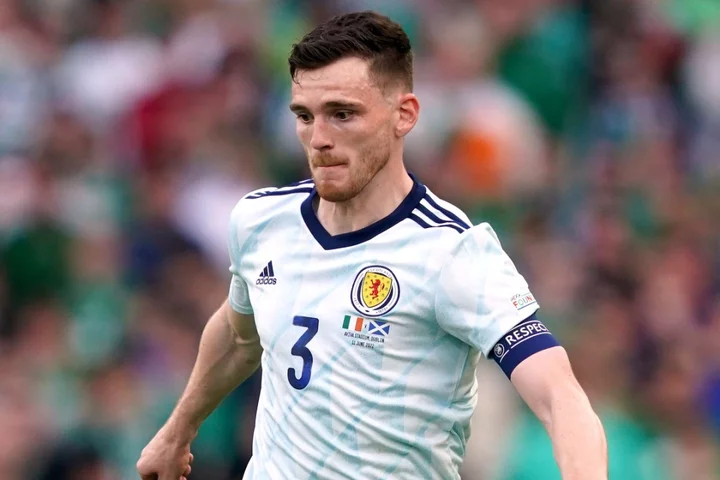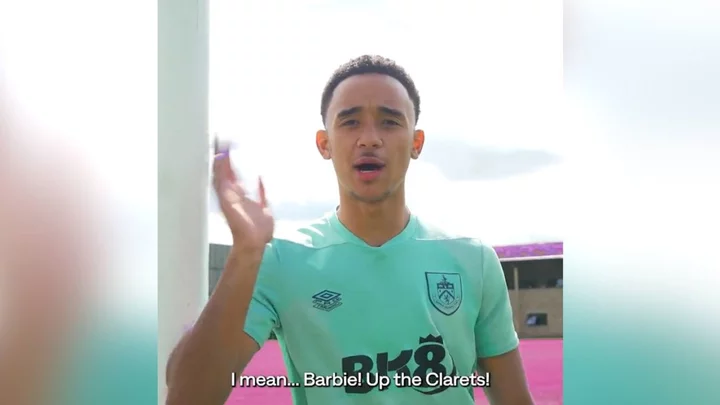Coventry City aiming to come full circle after journey to hell and back
It’s 22 years and counting since Coventry City last graced the Premier League, over two decades of ups and downs, necessary ups as a result of downs, a whole chapter and more of club history written outside of the game’s elite. Once, the Sky Blues were synonymous with top-flight football, iconic 90s names - if not always quite among the elite - throughout the team. They were in the first Premier League campaign, the 1992/93 season, and stayed a part of that fledgling top flight for the first nine years, finishing in the bottom half each term but always there, always a tough opponent, always carrying players with a backstory, a big future, or both. But an entire generation of football fans have never seen Coventry among the top clubs. A sea-change has happened at England’s highest level since they were on the scene; they departed in 2001, two years before Roman Abramovich bought Chelsea and could now return one year after he sold it. While billions were moved around in the transfer market and in broadcast deals in Coventry’s absence, they embarked on an altogether more painful journey; should they complete the comeback on 27 May and win the EFL Championship play-off final they will become the first team to go from the Premier League all the way down to the fourth tier...and come all the way back up again. Before they can dream of all that, though, they must overcome Middlesbrough in a two-legged semi-final. The first of those games comes on home soil. A generation back, that would have been Highfield Road. For those who haven’t followed the fortunes and failings of Coventry’s ownership since then, that memorable old ground - where they played for over a century - was demolished in 2005. They moved to the Ricoh Arena, but less than ten years later there were leasing issues and disagreements, resulting in the team spending a season at Sixfields in Northampton, 33 miles away. A return to within the city limits lasted only another few years, with the 19/20 and 20/21 campaigns spent playing home games at St. Andrew’s, in Birmingham - this time 23 miles away, and in the opposite direction to Sixfields. Two seasons back at the renamed Ricoh, now the Coventry Building Society Arena have followed, with a ten-year deal to play there seemingly securing the club’s immediate future in terms of a home ground - but the stadium owners were since bought out and Coventry have only, until now, agreed a deal to stay until the end of this campaign. Closer to home, matters haven’t been much better. Investment group Sisu Capital bought the Sky Blues in 2007 to stop them going out of business, but under Ray Ranson’s chairmanship the club floundered financially and on the football pitch. Liquidation and relegation to League Two painted a bleak picture; the EFL Trophy in 2017 and promotion back to League One in 2018 offered far more of a glimpse of hope. Doug King, a local businessman, finally completed a full takeover just a few months ago and immediately insisted on a future of “transparency and clarity”, noting there was no debt on the club and no interest would be payable on loans provided to it. However, he was unable to secure the purchase of the stadium, leaving work to do there for next season. Yet even that question mark only becomes cause for excitement if Coventry can pull off the most improbable of finishes to this campaign. When King took sole ownership on 27 January - just four months to the day before the play-off final - Coventry sat 15th in the Championship. They had won nine games all season, and lost ten. They had a negative goal difference. Their first game of the new era took place the next day and they won - and they have done so, again and again, in nine of their last 19, losing only twice. Mark Robins has managed nothing shy of a minor miracle in that most mad-cap of leagues, while it’s worth noting that the final day of the regular season saw them play away at the very team they now face twice more. A 1-1 draw at ‘Boro didn’t give much away for either side, while Coventry won the early-season meeting on home soil. Robins, of course, is the former striker who - as myth, legend or partial truth tells it - saved Sir Alex Ferguson’s career at Manchester United in those pre-trophy early seasons, scoring a goal in a must-win FA Cup clash which might otherwise have seen the Scot sacked. Robins went on to play for Norwich and Leicester, before a nomadic final decade or so in the game. This spell with Coventry, his second with the club, is his sixth coaching job. He is just three games away from giving the fans their best occasion in decades. And they have had plenty of those memorable occasions before. This was a club of Dion Dublin, Noel Whelan, Darren Huckerby, Robbie Keane. And before that, of Steve Ogrizovic, Roland Nilsson, Roy Wegerle, Gary McAllister and Peter Ndlovu. They were genuinely exciting, talented, committed players who could certainly have played for the biggest sides - some indeed went on to do so - had that era been like this one, where top clubs swoop continuously on any of those below them who fare well. Now it is instead to Viktor Gyokeres, Gustavo Hamer and Callum Doyle the fans will look, in hope and in anguish, that a long and difficult road might be just weeks from the final corner. What lays around it is almost entirely unknown, yet it could also in many ways mark the most incredible full-circle journey the Premier League era has seen. Read More A tiny ground and a squad costing less than a Man City sub. So how are Luton within reach of the Premier League? When are the play-offs? West Ham overcome ghosts of Frankfurt to eye another shot at European glory Football rumours: Tottenham ready for fight to keep hold of Harry Kane On this day in 2010: Fulham beaten by Atletico Madrid in Europa League final
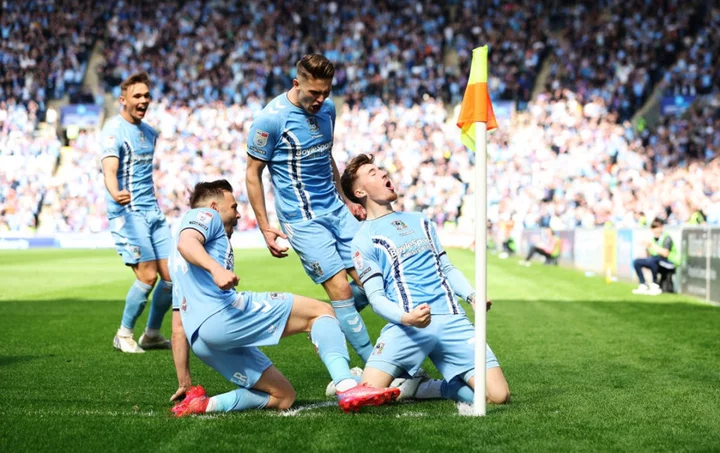
It’s 22 years and counting since Coventry City last graced the Premier League, over two decades of ups and downs, necessary ups as a result of downs, a whole chapter and more of club history written outside of the game’s elite.
Once, the Sky Blues were synonymous with top-flight football, iconic 90s names - if not always quite among the elite - throughout the team. They were in the first Premier League campaign, the 1992/93 season, and stayed a part of that fledgling top flight for the first nine years, finishing in the bottom half each term but always there, always a tough opponent, always carrying players with a backstory, a big future, or both.
But an entire generation of football fans have never seen Coventry among the top clubs. A sea-change has happened at England’s highest level since they were on the scene; they departed in 2001, two years before Roman Abramovich bought Chelsea and could now return one year after he sold it.
While billions were moved around in the transfer market and in broadcast deals in Coventry’s absence, they embarked on an altogether more painful journey; should they complete the comeback on 27 May and win the EFL Championship play-off final they will become the first team to go from the Premier League all the way down to the fourth tier...and come all the way back up again.
Before they can dream of all that, though, they must overcome Middlesbrough in a two-legged semi-final.
The first of those games comes on home soil. A generation back, that would have been Highfield Road. For those who haven’t followed the fortunes and failings of Coventry’s ownership since then, that memorable old ground - where they played for over a century - was demolished in 2005. They moved to the Ricoh Arena, but less than ten years later there were leasing issues and disagreements, resulting in the team spending a season at Sixfields in Northampton, 33 miles away. A return to within the city limits lasted only another few years, with the 19/20 and 20/21 campaigns spent playing home games at St. Andrew’s, in Birmingham - this time 23 miles away, and in the opposite direction to Sixfields.
Two seasons back at the renamed Ricoh, now the Coventry Building Society Arena have followed, with a ten-year deal to play there seemingly securing the club’s immediate future in terms of a home ground - but the stadium owners were since bought out and Coventry have only, until now, agreed a deal to stay until the end of this campaign.
Closer to home, matters haven’t been much better.
Investment group Sisu Capital bought the Sky Blues in 2007 to stop them going out of business, but under Ray Ranson’s chairmanship the club floundered financially and on the football pitch. Liquidation and relegation to League Two painted a bleak picture; the EFL Trophy in 2017 and promotion back to League One in 2018 offered far more of a glimpse of hope.
Doug King, a local businessman, finally completed a full takeover just a few months ago and immediately insisted on a future of “transparency and clarity”, noting there was no debt on the club and no interest would be payable on loans provided to it. However, he was unable to secure the purchase of the stadium, leaving work to do there for next season.
Yet even that question mark only becomes cause for excitement if Coventry can pull off the most improbable of finishes to this campaign.
When King took sole ownership on 27 January - just four months to the day before the play-off final - Coventry sat 15th in the Championship. They had won nine games all season, and lost ten. They had a negative goal difference.
Their first game of the new era took place the next day and they won - and they have done so, again and again, in nine of their last 19, losing only twice. Mark Robins has managed nothing shy of a minor miracle in that most mad-cap of leagues, while it’s worth noting that the final day of the regular season saw them play away at the very team they now face twice more. A 1-1 draw at ‘Boro didn’t give much away for either side, while Coventry won the early-season meeting on home soil.
Robins, of course, is the former striker who - as myth, legend or partial truth tells it - saved Sir Alex Ferguson’s career at Manchester United in those pre-trophy early seasons, scoring a goal in a must-win FA Cup clash which might otherwise have seen the Scot sacked. Robins went on to play for Norwich and Leicester, before a nomadic final decade or so in the game. This spell with Coventry, his second with the club, is his sixth coaching job. He is just three games away from giving the fans their best occasion in decades. And they have had plenty of those memorable occasions before.
This was a club of Dion Dublin, Noel Whelan, Darren Huckerby, Robbie Keane. And before that, of Steve Ogrizovic, Roland Nilsson, Roy Wegerle, Gary McAllister and Peter Ndlovu. They were genuinely exciting, talented, committed players who could certainly have played for the biggest sides - some indeed went on to do so - had that era been like this one, where top clubs swoop continuously on any of those below them who fare well.
Now it is instead to Viktor Gyokeres, Gustavo Hamer and Callum Doyle the fans will look, in hope and in anguish, that a long and difficult road might be just weeks from the final corner.
What lays around it is almost entirely unknown, yet it could also in many ways mark the most incredible full-circle journey the Premier League era has seen.
Read More
A tiny ground and a squad costing less than a Man City sub. So how are Luton within reach of the Premier League?
When are the play-offs?
West Ham overcome ghosts of Frankfurt to eye another shot at European glory
Football rumours: Tottenham ready for fight to keep hold of Harry Kane
On this day in 2010: Fulham beaten by Atletico Madrid in Europa League final


